26 Feb Playing and Singing Appalachian Style with Aubrey Atwater
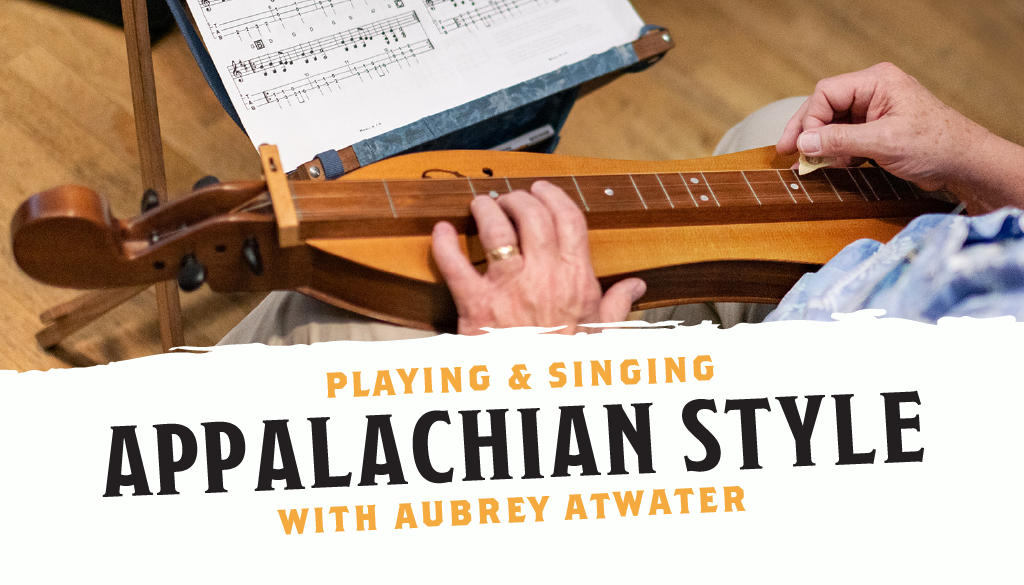
Join Aubrey Atwater for a delightful journey into Appalachian culture on May 25-30, 2025 during Playing and Singing Appalachian Style! Learn to sing traditional songs, play instruments like the dulcimer, banjo, and mandolin, and try Appalachian dance steps and games.
Read more about Aubrey and her class in our interview below. Interested? Register here.
JCCFS: Tell us a little bit about yourself. What’s your background in your medium? How did you get started?
AA: I’ve been a full time musician and dancer, touring and teaching since the 90s and have taught at the Folk School for almost 30 years. I have spent a great deal of time around the masters and primary sources of traditional American folk music and dance, like Jean Ritchie, and play and teach a variety of instruments, clog, and research the roots and origins of folk music and dance.
JCCFS: Tell us more about your upcoming class, ” Playing and Singing Appalachian Style,” does your class have a specific technique or process?
AA: We divide the days into short periods for learning, discussion, and group collaboration. We have tons of fun exploring what each student would like to learn instrument, song, and dance-wise. I have taught this class numerous times and it is different and fascinating each time. Some students, for example, want to learn the mountain dulcimer, or to jam together, or sing ballads, or dance the Virginia Reel, or learn a few clogging steps. Sometimes we have visitors or go on little field trips to meet musicians in the community or visit a historical site.
JCCFS: What tips would you give a student or aspiring craftsperson? Anything you wish you had known earlier in your career?
AA: That is takes a great deal of time and dedication to achieve mastery; that it helps to love your craft so much that you pretty much eat, sleep and breathe your cherished work. Take the time you can to discern what it is you really want to do, what calls you. Examine whatever obstacles (logistical, psychological, etc.) might be in your path to see how/if they can be tackled. Know that there can be many difficult moments along the way but stick with it. Be organized, manage your time well. Enjoy the work and talents of others and be happy.

Aubrey performing
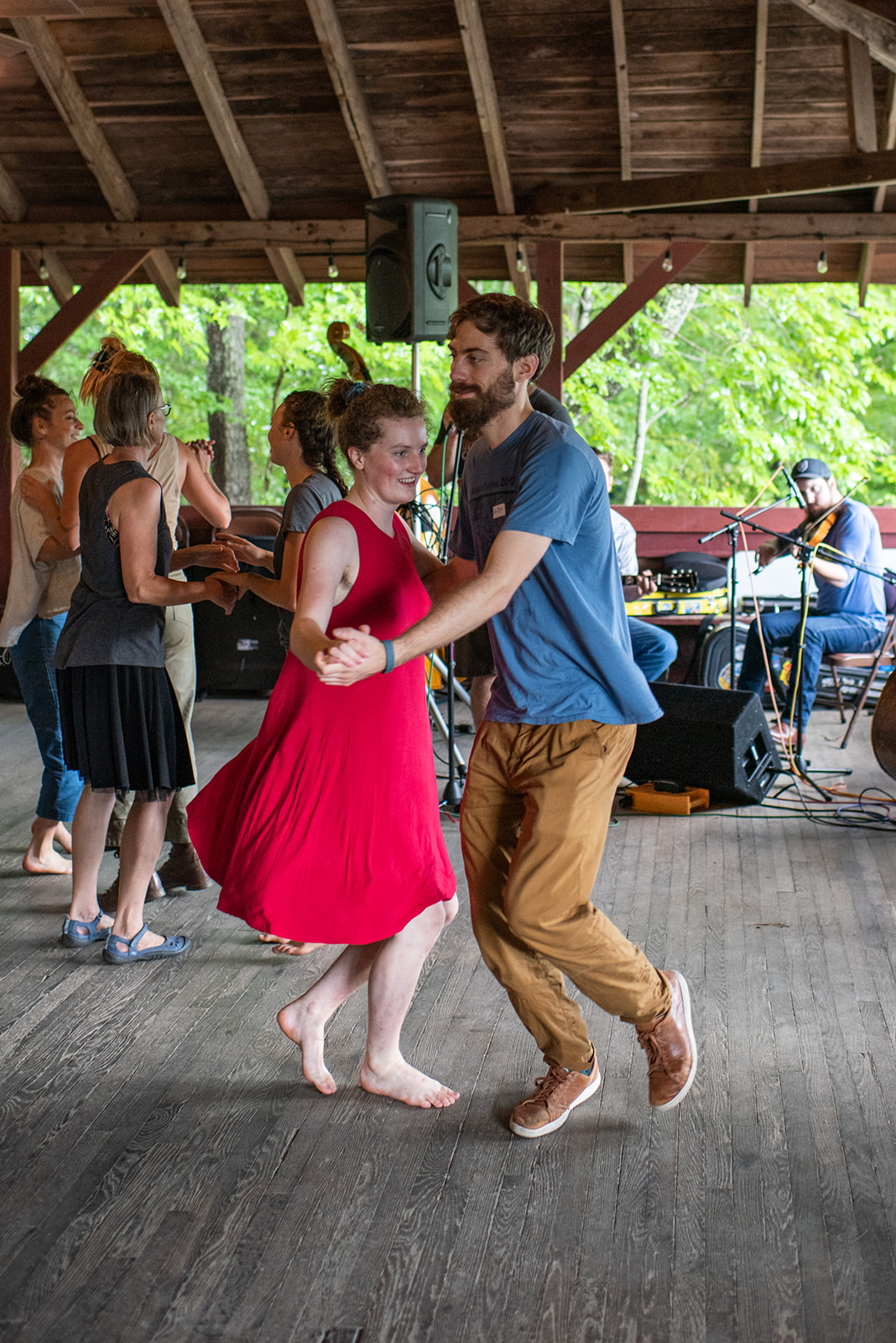
Students dancing during Appalachian Dance Week
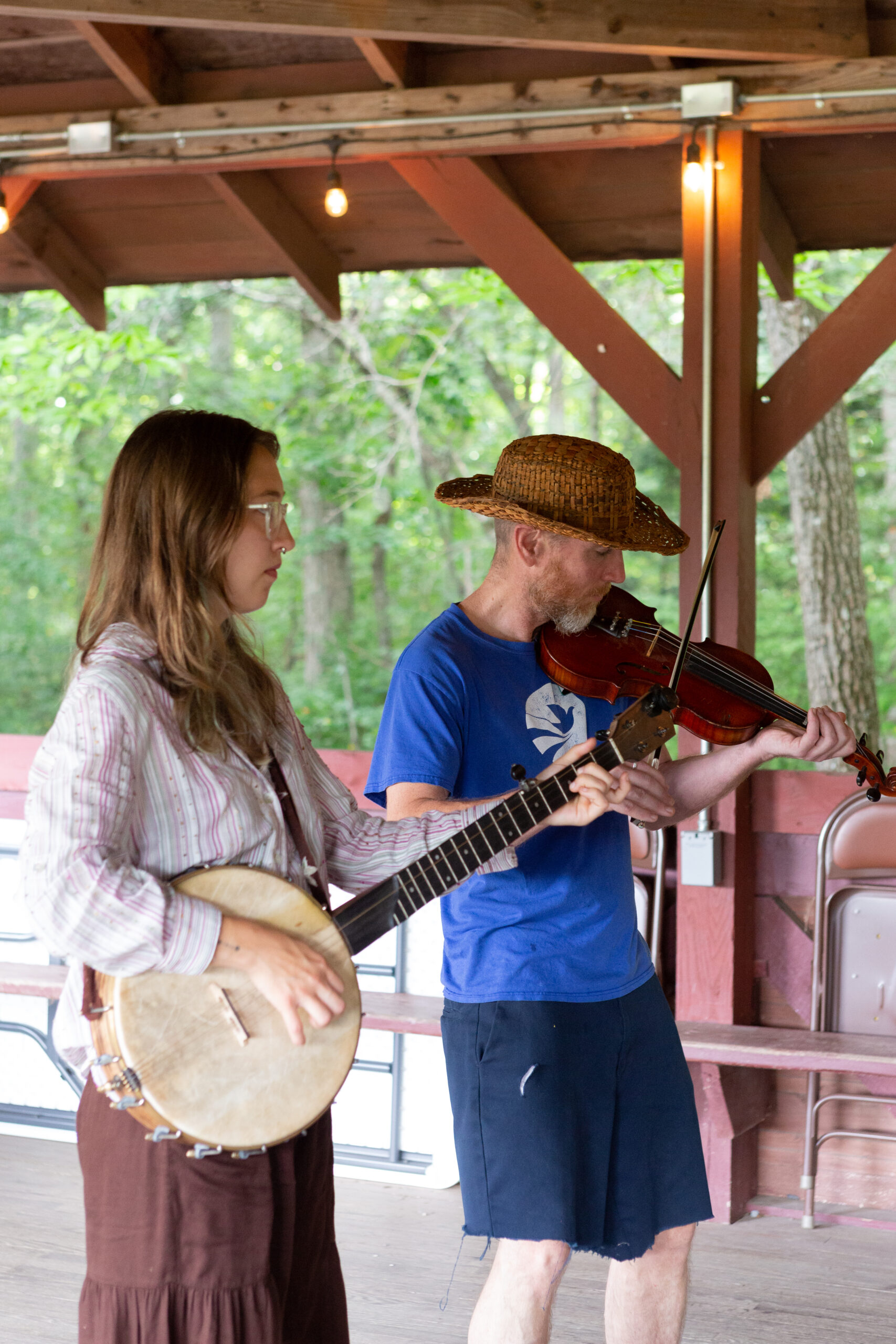
Students in class at Open House
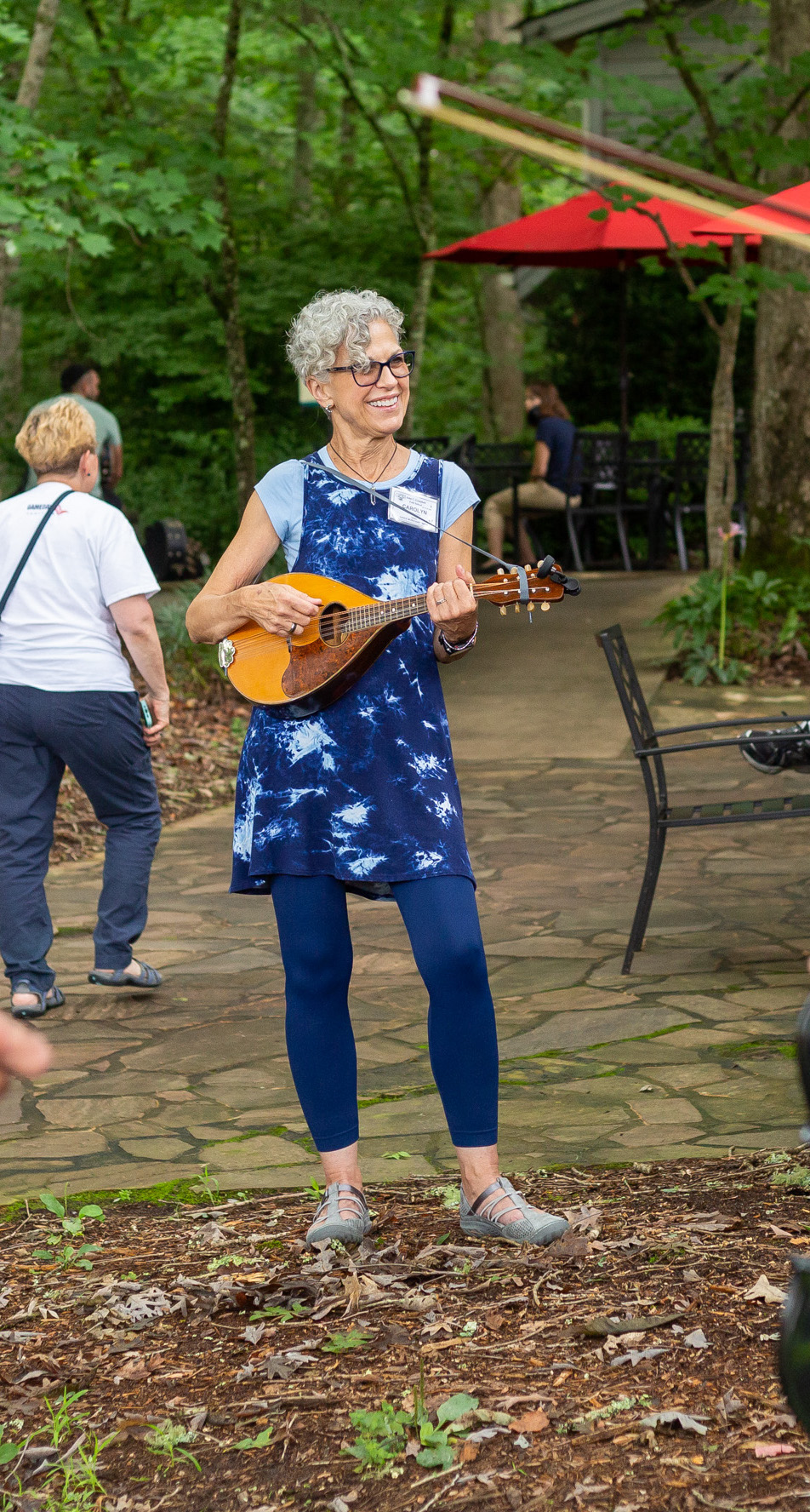
A student performing lunch time jam during Dance Musicians Week
JCCFS: What can students expect to leave you class with?
AA: A wealth of knowledge, new songs to work on and add to their repertoires, a variety of fascinating ideas about the songs and their histories; laughs and maybe even some tears because the songs are so beautiful and moving; making new friends; singing, dancing, playing together.
JCCFS: What is your favorite aspect or part of the Folk School? What do you most look forward to when coming back to teach on our campus?
AA: The beautiful ethos of non-competitive learning and work, gracious kindness, beauty all around us, interesting and inspiring content, friendships made, community meals, hikes and walks and nature around the stunning campus. A time of reflection and retreat. I have been working at the Folk School about once a year for almost 30 years and it is a very important and meaningful part of my life.
JCCFS: Where do you draw inspiration from for your work?
AA: The many, many folk singers, musicians and dancers that I have learned my songs and tunes and steps from via oral tradition such as, especially, the life and work of folk singer and mountain dulcimer player Jean Ritchie who I knew for many years and who had a connection to the Folk School. The archives, histories and stories of American folk music that I delve into and read on a regular basis. Our fans and students and musical colleagues and all our fascinating discussions and exchanges and encouraging remarks. My work with children and the adolescents and young adults I mentor. The Folk School is very inspiring and important to me–I feel very lit up and well-understood when I am there and can explore many aspects of folk music with my students who are as interested and excited about it as I am. Although I teach at the Folk School just once a year, it is often in my thoughts and has shaped how I conduct my creative life.
JCCFS: What’s one piece or craft object you’ve made recently that you are proud of, and why?
AA: I just finished 10 new scripts for a public radio show called Ozark Highlands Radio that has hired me as a guest host for 10 years. These are deeply curated and researched, 6-8 minute pieces on aspects of folk music and dance. I adapted one of the pieces, a clogging (dance) demo, for a live stage performance at the Ozark Folk Center which was captured on video and it has gotten over half a million views on FaceBook. Watch it here.
JCCFS: Where can folks find you if they want to stay up to date on your work?
AA: On my website. www.atwater-donnelly.com or you can find me on Facebook, aubreyfolk
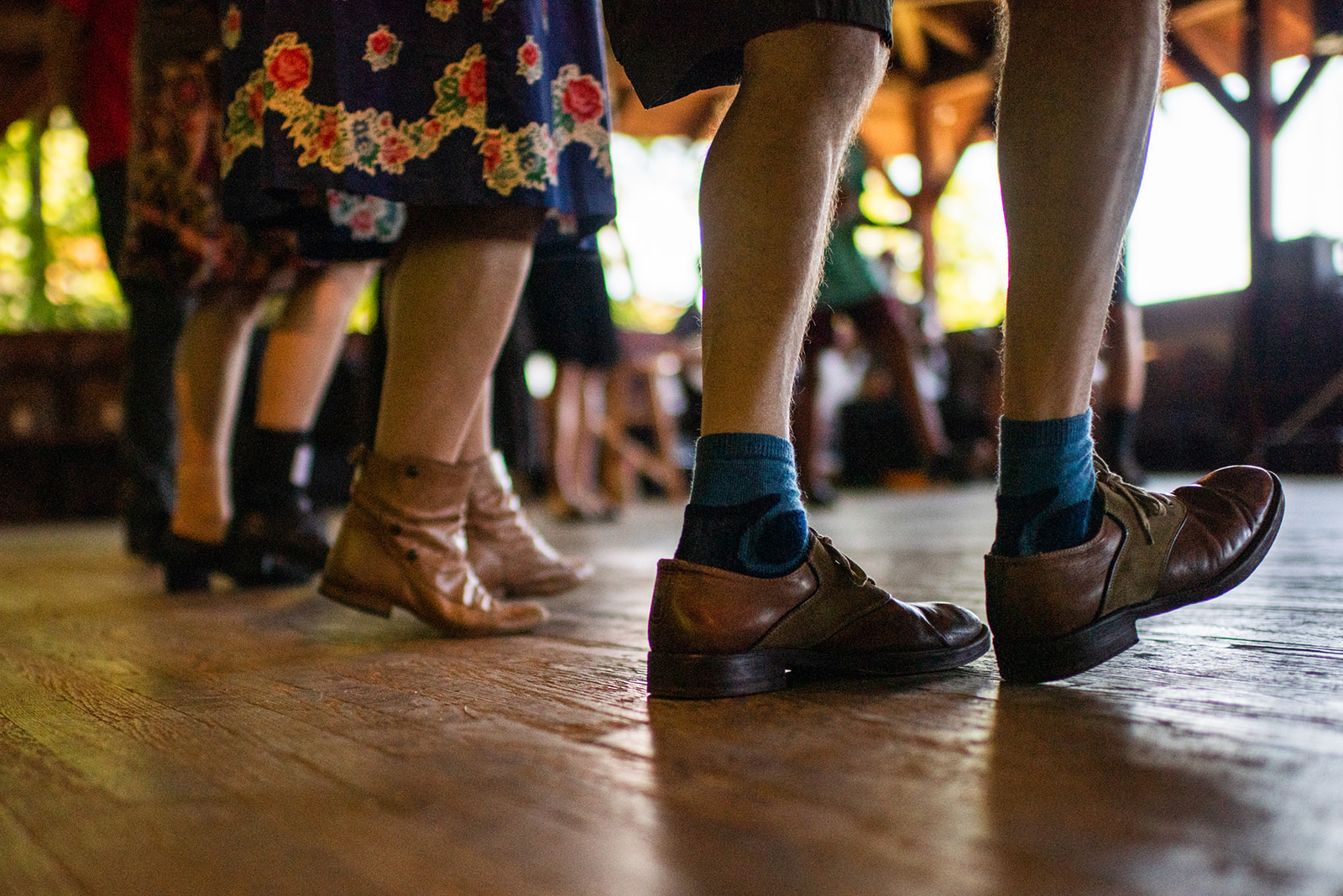
Check out Aubrey’s video
Upcoming Class with Aubrey
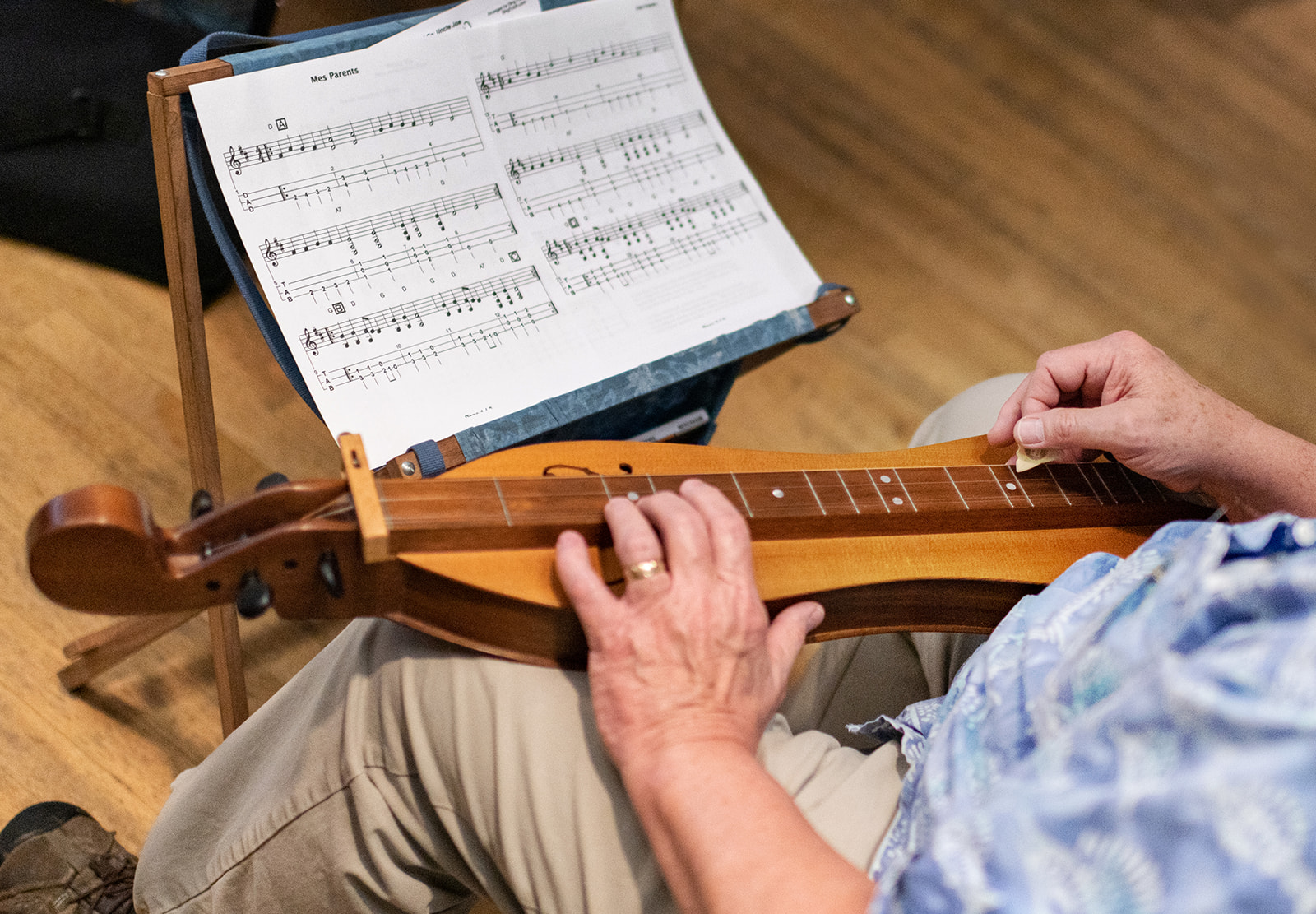
About Aubrey Atwater
Aubrey Atwater from Warren, RI, is an award-winning musician, vocalist, writer, public radio commentator, and dancer. She presents captivating programs of folk music, dance, and spoken word. Aubrey is in great demand for performances and classes and has performed throughout the United States as well as England, Ireland, and Canada. She sings and plays the mountain dulcimer, old-time banjo, guitar, mandolin, and Irish tin whistle, and thrills audiences with her highly percussive flatfoot clogging. Part of the acclaimed duo Atwater-Donnelly, Aubrey and her husband Elwood Donnelly perform and have thirteen recordings and eight books to their credit.




No Comments